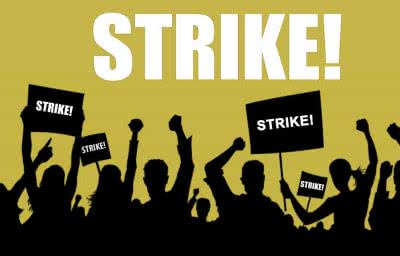Betekenis van het woord strike in het Nederlands
Wat betekent strike in het Engels? Ontdek de betekenis, uitspraak en specifiek gebruik van dit woord met Lingoland
strike
US /straɪk/
UK /straɪk/

Werkwoord
1.
2.
staken
refuse to work as a form of organized protest, typically in an attempt to obtain concessions from their employer
Voorbeeld:
•
The workers decided to strike for higher wages.
De arbeiders besloten te staken voor hogere lonen.
•
The union threatened to strike if their demands were not met.
De vakbond dreigde te staken als hun eisen niet werden ingewilligd.
Synoniem:
3.
aanval, slag
a sudden, dramatic, and successful military attack
Voorbeeld:
•
The air force launched a precision strike against the enemy.
De luchtmacht lanceerde een precisie-aanval tegen de vijand.
•
The government authorized a retaliatory strike.
De regering gaf toestemming voor een vergeldingsaanval.
Zelfstandig Naamwoord
1.
staking
a refusal to work organized by a body of employees as a form of protest, typically in an attempt to gain concessions from their employer
Voorbeeld:
•
The union called for a general strike.
De vakbond riep op tot een algemene staking.
•
The transport workers are planning a 24-hour strike.
De transportarbeiders plannen een 24-uurs staking.
Synoniem:
Leer dit woord op Lingoland